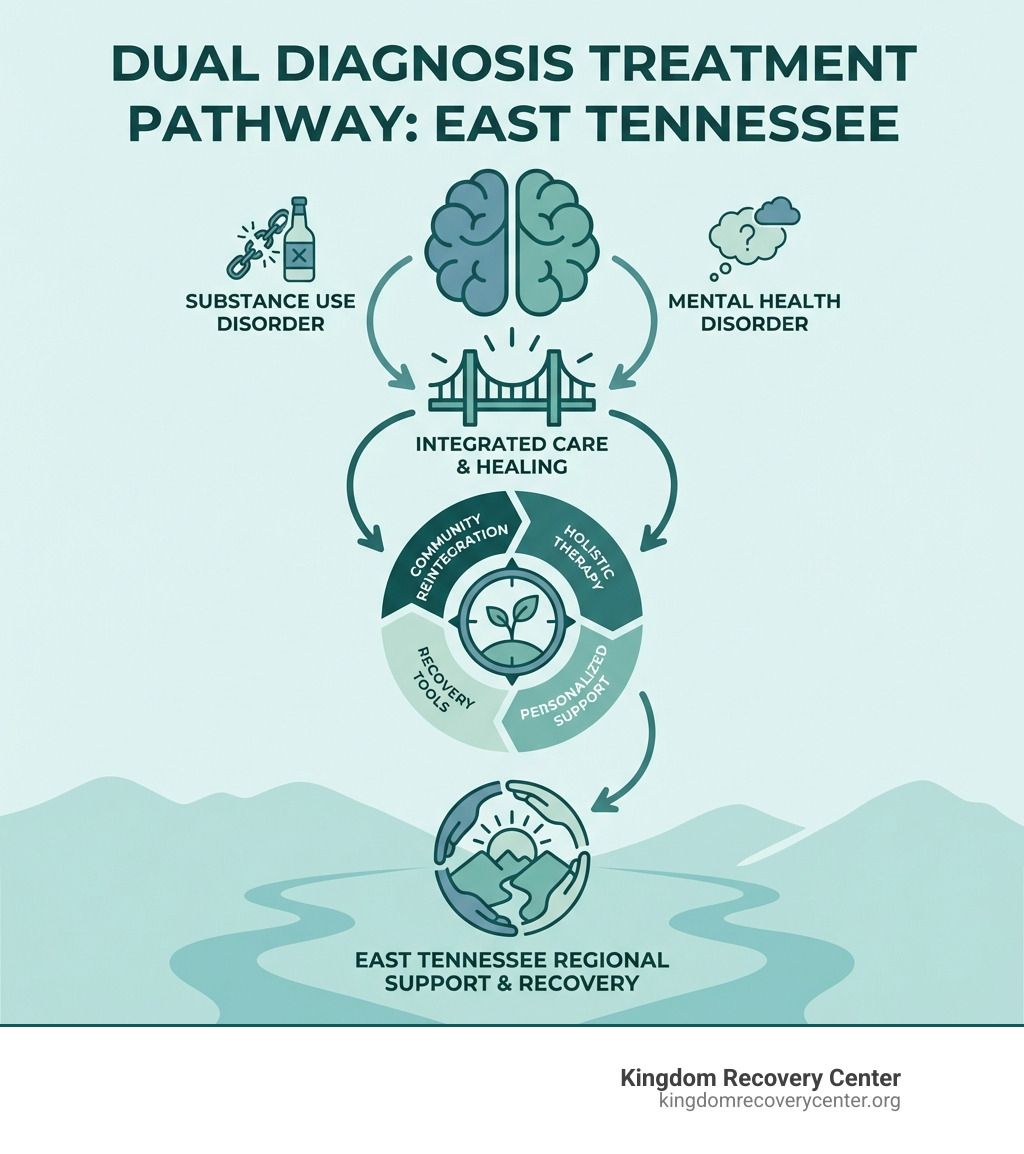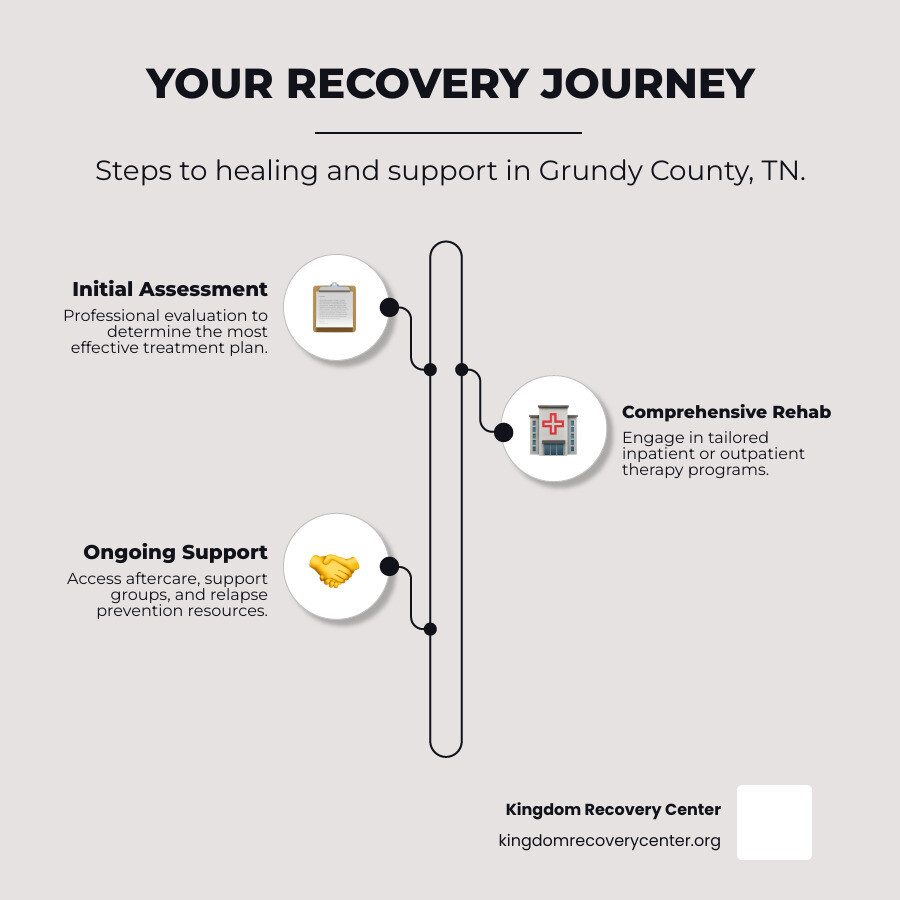
Understanding Drug and Alcohol Detox: What to Expect During Withdrawal
Are you struggling to understand what happens during drug and alcohol detox? This post explains what happens during detox, including detailed insights on recognizing withdrawal signs, safe detox methods, and timelines for managing symptoms. It provides clear guidance to help those facing confusion about withdrawal processes and specific strategies to manage them effectively. By reading this content, readers will gain practical information to ease their concerns and recently learn how to approach detox with professional support.
Key Takeaways
- the detox process manages withdrawal symptoms with precise medical oversight and nutritional support
- structured monitoring helps guide recovery through different withdrawal stages
- dietary choices support the management of inflammation, metabolic issues, and withdrawal discomfort
- behavioral therapies and alternative treatments add to patient well-being during detox
What Is Drug and Alcohol Detox and Why Is It Necessary?

This section outlines the drug detox process, detailing how a patient’s neurotransmitter balance is restored after stimulant use and addressing the specific requirements for alcohol detox, as part of our what-we-treat offerings. It also considers factors like insulin resistance and stress, supporting the verification-of-benefits by offering practical insights into managing withdrawal effects safely and effectively.
Understanding the Drug Detox Process
The drug detox process involves safely managing the body’s response as it strives to restore balanced neurotransmitter levels following stimulant use; the approach may include nutritional support such as incorporating fruit to assist in mitigating inflammation and support skin health while addressing metabolic factors like insulin resistance and comorbidity challenges experienced by patients during withdrawal:
| Stage | Focus | Details |
|---|---|---|
| Initial Assessment | Smart Recovery | Implementing structured management plans that emphasize smart recovery methods and holistic care. |
| Stabilization | Nutritional and Physical Health | Incorporating dietary items like fruit to reduce inflammation and improve skin condition, while considering comorbidity issues. |
| Monitoring Withdrawal | Symptom Management | Regular evaluation of withdrawal symptoms and adjusting therapeutic interventions accordingly. |
The process is designed to reduce discomfort during withdrawal and support recovery through continuous monitoring and customized care, integrating principles of smart recovery with practical adjustments that account for individual health factors such as inflammation and existing comorbidity challenges.
Examining Alcohol Detox Requirements
The assessment of alcohol detox needs centers on evaluating internal irritants and external pollutant exposures that may influence withdrawal trajectories. Medical teams often incorporate measures such as proper irrigation of bodily systems to reduce adverse reactions and manage escalating panic related to detoxification stress.
Practitioners advise including nutrient-rich foods like spinach to support recovery, as dietary choices can alleviate symptoms such as bloating during detox. Observations indicate that precise management of these factors minimizes clinical discomfort and provides guided support for patients during withdrawal.
Recognizing Signs of Withdrawal

This section outlines common withdrawal symptoms, addressing issues like electrolyte imbalance, seizure risks, and effects on the gastrointestinal tract. It also differentiates between physical and psychological markers with clinical feedback while considering impacts on sensitive cases, including fetus exposure, to provide clear insights into what to expect during detox withdrawal.
Common Symptoms Experienced During Withdrawal
During withdrawal, individuals may experience physical discomfort marked by irregular vital signs and lung discomfort triggered by a sudden stimulus. Key symptoms may include mild cough, difficulty breathing, and a fluctuating heartbeat that require careful medical oversight:
- Fluctuations in vital signs
- Lung irritability
- Trigger-induced responses
Other common indications include digestive upsets that might be relieved with nutrient-rich options such as a smoothie or a carefully prepared syrup, providing practical relief. Clinicians monitor these markers to ensure patient safety and adjust interventions as needed, reinforcing a dependable care routine throughout the detox process.
Distinguishing Between Physical and Psychological Symptoms
The process distinguishes between physical and psychological symptoms during detox by highlighting specific markers and patient responses related to substance dependence. The clinical team evaluates physical reactions such as the frequency of elevated heart rate, slight fever, and respiratory issues that may resemble the impact of a pesticide exposure, providing insight into the body’s immediate state.
Psychological symptoms are monitored separately, with observations focusing on stress levels and anxiety, while supportive measures such as antioxidant-rich nutritional options are considered to reduce overall discomfort. The care plan includes practical assessments based on the following indicators:
- Elevated frequency of vital sign changes
- Mild fever occurrences
- Patterns resembling pesticide-related irritation
Overview of Detox Timelines

The section details medical detoxification for alcohol, addressing the alcohol detox timeline explained and typical drug withdrawal timelines. The review covers factors like a sudden cold turkey approach, loss of mineral levels, weight loss, and impacts on the circulatory system, offering professional insights to help understand the gradual adjustment process during detox.
The Alcohol Detox Timeline Explained
The alcohol detox timeline can vary based on individual factors, but clinical observations indicate that the initial phase generally spans several days, providing essential information on how medications like lorazepam support the nervous system and stabilize metabolism during early withdrawal. This period emphasizes the critical balancing of neurotransmitters as the body adjusts to the absence of alcohol, ensuring that withdrawal symptoms are managed effectively with the aid of medically supervised interventions, including the possible use of naltrexone.
Subsequent stages of detoxification involve closer monitoring of the nervous system and metabolic responses to ensure a gradual and safe recovery. Medical teams rely on precise information gathered throughout this process to make timely adjustments to treatment protocols, utilizing therapeutic agents such as lorazepam and naltrexone, which have shown to assist in maintaining equilibrium and reducing adverse withdrawal effects.
Typical Drug Withdrawal Timelines
The drug withdrawal timeline varies for each individual, with early stages marked by an increase in toxicity as the body begins its recovery process. During this period, patients might experience insomnia and brief disruptions in breathing, making it essential to explore supportive measures such as prebiotic supplements and tea to ease the transition.
As withdrawal progresses, the detox process generally stabilizes, allowing the body to gradually counteract lingering toxicity and nutritional deficiencies. Medical professionals often note that addressing symptoms like insomnia and difficulty in breathing with tools like prebiotic options and calming tea can substantially improve patient comfort and support recovery during this critical phase.
Safe Detox Methods Available

This section explains how medical supervision in detox programs assists patients during withdrawal while alternative therapies support recovery. It also discusses the critical role of hydration and nutrition in reducing emergency complications, managing master cleanse adjustments, using clonazepam when needed, and addressing vomiting concerns.
Medical Supervision in Detox Programs
Medical supervision in detox programs plays a crucial role in monitoring withdrawal symptoms such as hyperthermia and preventing relapse. The clinical teams focus on stabilizing nutrient levels and ensuring that patients receive the necessary calorie and fat intake to support overall health during the recovery process.
Expert care during detox is designed to reduce stress and manage adverse reactions by closely observing the patient’s physiological changes. This attentive approach helps mitigate risks like hyperthermia while providing guidance on maintaining balanced nutrient consumption to support recovery and prevent relapse.
Alternative Therapies to Support Recovery
Alternative therapies support recovery by integrating natural remedies, such as green tea and coffee, with conventional alcohol detoxification treatment solutions. Clinicians advise that patients maintain a careful dose of these beverages to manage withdrawal symptoms and reduce the underlying fear associated with detox.
Health professionals note that incorporating these methods offers an accessible adjunct to traditional care, often stabilizing mood and providing comfort during recovery; this strategy benefits patients who may find conventional methods insufficient due to lingering fears and physical discomfort:
| Therapy | Benefit | Application |
|---|---|---|
| Green Tea | Offers antioxidants and supports calmness | Used in controlled doses alongside medical treatment |
| Coffee | Provides mild stimulation to improve alertness | Incorporated as a low-dose option to manage fatigue |
| Alcohol Detoxification Treatment | Includes comprehensive support strategies | Adjusted according to patient response during withdrawal |
Importance of Hydration and Nutrition During Detox
Maintaining hydration and nutrition is critical during detox, as proper intake helps ease physical pain and stabilize temperature fluctuations. Medical experts often incorporate balanced foods with an appropriate amount of salt to support recovery and assist with skin care while patients are monitored alongside medications like carbamazepine.
Ensuring sufficient fluid consumption complements nutritional strategies to reduce withdrawal discomfort and promote overall well-being. Clinicians recommend this approach to alleviate pain, maintain a stable body temperature, and support essential skin care objectives, especially when managing the effects of detox medications such as carbamazepine.
Managing Withdrawal Symptoms Effectively

This section reviews detox medications such as chlordiazepoxide and behavioral therapies like peer support to ease withdrawal symptoms. It also covers practical recovery measures including meal planning to help manage stress and avoid the urge to smoke, reflecting strategies used by american addiction centers.
Medications Used in Detox
The clinical team employs medications such as diazepam to support abstinence and stabilize patients during withdrawal. Their approach includes careful management of symptoms to reduce the risk of worsening disease conditions, ensuring that patients remain focused and alert, as when noticing any eye-related discomfort during the treatment process.
Therapeutic protocols incorporate measures that minimize excessive reliance on substances like caffeine, which can influence withdrawal dynamics. Through a well-structured regimen and consistent monitoring, clinicians provide actionable insights and personalized care, effectively addressing individual challenges and mitigating overall discomfort.
Behavioral Therapies for Withdrawal Support
The clinical team acknowledges that behavioral therapies offer valuable support by addressing both mental and physical challenges during detox. They integrate health care strategies with practical learning about genetics and methadone management to provide targeted interventions and ease withdrawal symptoms.
Practitioners utilize behavioral techniques to assist with stress management and the regulation of excretion processes as individuals progress through detox protocols:
- Individualized therapy sessions
- Stress reduction exercises
- Monitoring of methadone adjustments
- Feedback based on genetic predispositions
- Guidance on practical learning for self-care
These measures ensure a comprehensive approach to withdrawal support, addressing the unique needs of each patient effectively.
Know What to Expect During the Withdrawal Process

The discussion covers phases of withdrawal and their duration, emphasizing how factors like sugar levels, medication adjustments, and specific treatments such as phenobarbital are managed. It outlines emotional and mental health support for depression and highlights therapy options while offering guidance on aftercare planning for long-term recovery.
Phases of Withdrawal and Their Duration
The phases of withdrawal vary based on individual health factors and the substance involved, with early stages typically marked by symptoms such as nausea and fluctuating energy levels during drug withdrawal. Primary care specialists continuously adjust treatment protocols during drug detoxification to ensure that each phase, from initial discomfort to gradual stabilization, is managed safely for those recovering from alcohol dependency.
Medical teams emphasize the importance of structured monitoring as patients progress through withdrawal stages, noting that the duration of symptoms can range from a few days to several weeks. This tailored approach, grounded in primary care expertise and precise management of drug detoxification, helps mitigate discomfort and fosters a smoother transition toward sustained recovery.
Emotional and Mental Health Considerations During Detox
The clinical team notes that emotional and mental health during detox requires careful assessment, particularly when monitoring brain function and changes in gaba levels that affect an individual’s overall feeling of well-being. Recognizing the interplay between stress and blood chemistry, practitioners advise adjustments to the diet to support mental resilience during recovery:
- Maintain stable gaba levels through nutritional support
- Monitor brain responses to stress
- Adjust the diet to stabilize blood chemistry
Experts emphasize that managing anxiety and mood fluctuations is critical, as emotional health is as significant as physical recovery. Strategic interventions, including tailored diet plans and regular assessments of brain function, offer guidance to those facing emotional challenges during detox.
Aftercare Planning for Long-Term Recovery
Aftercare planning is essential for maintaining stability and preventing relapse in cases of benzodiazepine use disorder. Medical experts emphasize structured routines that include managing side effect profiles and monitoring muscle recovery while ensuring recommendations follow guidelines from the food and drug administration.
Clinicians advise continuous support and practical strategies, including nutrition plans that reduce bacteria growth and counteract treatment side effect. This careful planning offers a clear pathway for long-term recovery, providing patients with actionable insights to overcome challenges and rebuild their strength.
Conclusion
Understanding drug and alcohol detox is crucial for managing the body’s transition during withdrawal. The process includes detailed assessments, stabilization techniques, and continuous monitoring to address both physical and psychological symptoms. Medical supervision ensures safe recovery while integrating tailored nutritional and behavioral therapies. This knowledge empowers patients and caregivers to navigate withdrawal effectively and supports a comprehensive approach to long-term recovery.



